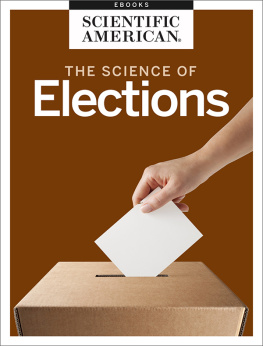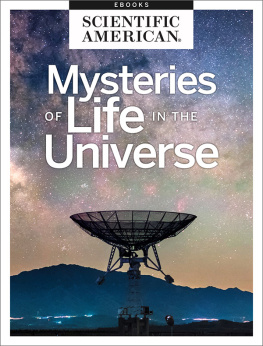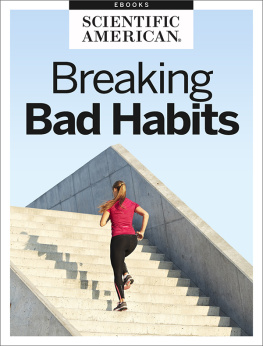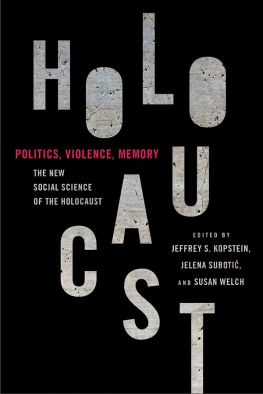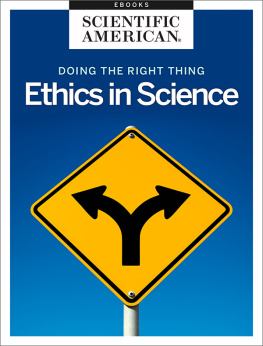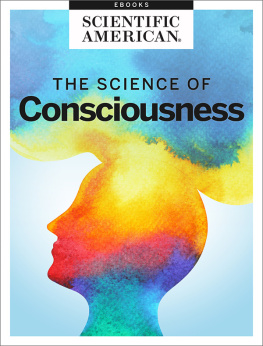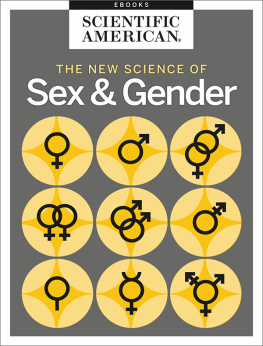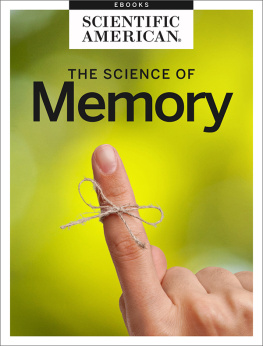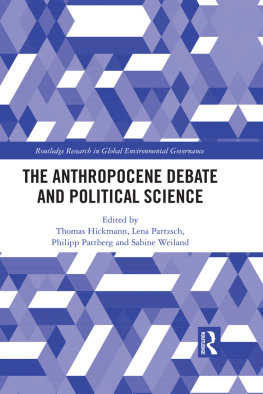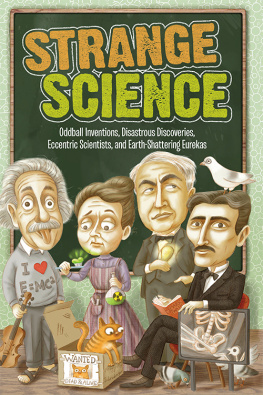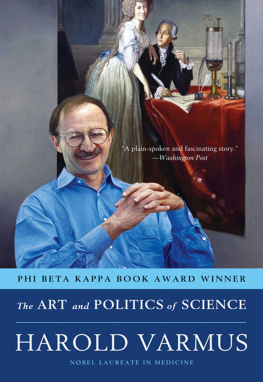The Science of Elections
From the Editors of Scientific American
Cover Image: malerapaso/Getty Images
Letters to the Editor
Scientific American
One New York Plaza
Suite 4500
New York, NY 10004-1562
or editors@sciam.com
Copyright 2017 Scientific American, a division of Nature America, Inc.
Scientific American is a registered trademark of Nature America, Inc.
All rights reserved.
Published by Scientific American
www.scientificamerican.com
ISBN: 978-1- 466824157


THE SCIENCE OF ELECTIONS
From the Editors of Scientific American
Table of Contents
Introduction
by Robert Keating
Section 1
1.1
by S. Alexander Haslam and Stephen D. Reicher
1.2
by Yvonne Raley
1.3
by Stephen D. Reicher, S. Alexander Haslam and Michael J. Platow
Section 2
2.1
by Robert B. Cialdini
2.2
by Michael Shermer
2.3
by Wolfgang Stroebe
2.4
by Vivian B. Martin
Section 3
3.1
by Douglas H. Blair and Robert A. Pollak
3.2
by Martin Gardner and Lynn Arthur Sheen
3.3
by Ted Selker
3.4
by Wendy M. Grossman
3.5
by Partha Dasgupta and Eric Maskin
3.6
by Rodger Doyle
Section 4
4.1
by Rodger Doyle
4.2
by J. Clark Archer, Fred M. Shelley, Peter J. Taylor and Ellen R. White
4.3
by Rodger Doyle
4.4
by Charles Q. Choi
4.5
by Charles Q. Choi
Section 5
5.1
by The Editors
In Search of Charisma
By S. Alexander Haslam and Stephen D. Reicher
The President pulled himself up the long ramp to the platform of his railwaycar.... Friend or foe, those who saw him at this moment could not help beingmoved at the sight of this severely crippled man making his way up with suchgreat difflcultyreally propelling himself along by his arm and shoulder musclesas his strong hands grasped the rails at the side of the ramp.
Franklin D. Roosevelts whistle-stoptrain tours in the presidential campaignsof 1932 and 1936, as describedhere by his speechwriter SamuelRosenman, have become the stuff of legend.By any measure, they were highlysuccessful. According to Breckinridge Long,Roosevelts ambassador to Italy, the crowdswho flocked to see him passed any bounds forenthusiasmreally wild enthusiasmthat Ihave ever seen in any political gathering. Thisgusto spilled over to the ballot box, and in1936 Roosevelt won the election by 11 millionvotes, taking every state bar Vermont andMaine. A range of academic studies, most notablyan influential analysis by Dean KeithSimonton of the University of California, Davis,published in 1988 in the Journal of Personalityand Social Psychology, identify Rooseveltas the most charismatic of all U.S. presidents.
At first, Roosevelts advisers counseled himagainst the tours that were to cement his reputation.In 1921 Roosevelt had been diagnosedwith polio or infantile paralysis, as it wasthen popularly called. As political campaigns expertKathleen Hall Jamieson of the University of Pennsylvaniahas vividly documented, for much of humanhistory effective and charismatic leaders havebeen depicted as virile, robustand energetic. Roo seveltsinfantile staterobbed him of all that.
What, then, was thesource of his charisma?Numerous scholars suggestthat he derived it by artfullyturning his disadvantageinto an advantage. Heshifted the focus from thenegative qualities of hiscondition to the positive attributesof his personalconquestcourage, enduranceand effort. Doing soallowed him to connectpersonally with the sufferingof millions of ordinaryAmericans during theGreat Depression. After he died, a reporter askedone of the mourners waiting to see his funeral trainat Washingtons Union Station, Why are you here?Did you know Franklin Roosevelt? The mourneris said to have replied, No, but he knew me.
Roosevelt managed to appear to be both of usand for us, a feat that lies at the heart of charismain general. Rather than a gift endowed from birth,charisma is the outcome of careful craftsmanship. Inthis process, the group being led is on equal footingwith the leader. The aspiring politician, business executiveor activist must integrate the groups history,hopes and values into a coherent storyin Rooseveltscase, it was centered on perseveranceand cast himselfor herself as emblematic of that narrative.
A delicate balance of social forces imbues a personwith the ability to inspire. When watching thestagecraft of an election, observethe candidates effortsto lodge their interpretationsof group identity in the mindsof voters. Politics is just onedomain, however. Recentfindings suggest we all canlearn to cultivate our owncharisma. Whether as a politician,a Fortune 500 CEO oran aspiring student bodypresident, we can shine a littlebrighter by understandinghow groups think.
Born or Made?
In Greek, the word charisma has multiplemeanings: the power to performmiracles, the ability tomake prophecies and the capacity to influence others.The last meaning is most relevant here becauseleadership is now commonly defined as a social process,as opposed to a trait, that enables a person tomotivate others to help achieve group goals.
Leadership and charisma were not always viewed as social phenomena. Since the first writings on the subject around 2,400 years ago, most scholars have considered the qualities of leadership to be possessed at birth by a select few. Socrates declared that only a tiny number of people have the breadth of vision and the physical and mental gifts required to preside over their fellow citizens. More recently, this position has been attributed to German sociologist Max Weber, the person generally credited with popularizing the term charisma. Early in the 20th century he described charisma as:
A certain quality of an individual personalityby which [a leader] is set apart fromordinary men and treated as endowed withsuperhuman or at least specifically exceptionalpowers or qualities. These are such asare not accessible to the ordinary person,but are regarded as of divine origin or as exemplary... as resting on magical powers.
Read more closely, however, and it becomesclear that Weber did not see charisma as merely arare quality possessed by certain lucky individuals.People tend to focus on the words superhumanand magical in the above quotation, but thewords treated and regarded are equally important.As Weber continues: What is alone importantis how the individual is regarded by those subjectedto charismatic authority, by his followers ordisciples. In other words, followers distinguishthe leader from others and confer charisma on himor her.
Empirical research supports this insight, in particularwork by the late James Meindl of the Universityat Buffalo S.U.N.Y. and his colleagues. Meindl,along with Sanford Ehrlich, now affiliated withU.C. San Diego, and Janet Dukerich of the Universityof Texas at Austin, reviewed 30,000 newspaperreports that mentioned business executives leadership.In 1985 they reported a strong correlation betweenreferences to charismatic leadership and evidencethat a companys performance had improved.The discovery suggested two possibilities: either aleaders decisions and actions led to organizationalimprovement, or when people saw a company performbetter, they assumed the outcome was becauseof charismatic leadership.
To tease out the thorny issues of causality,Meindl designed a follow-up experiment. Workingwith Rajnandini Pillai of California State UniversitySan Marcos, he presented business school studentswith biographical information about the malechief executive of a fast food company along withdata about the companys performance during thepreceding 10 years. Some study participants weretold that the company had gone from a profit intoloss (a crisis decline), whereas others were toldthat the business had remained in a loss, maintaineda profit or gone from a loss to profit (a crisis turnaround).The participants then rated the leaderscharisma on a series of scales.

